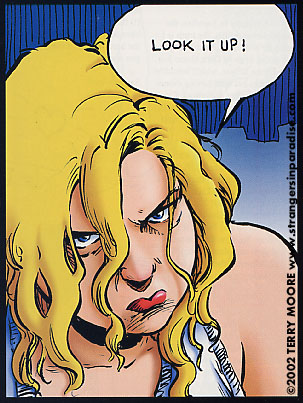A strange beautiful woman
met me in the mirror
the other night.
Hey,
I said,
What are you doing here?
She asked me
the same thing.
Marilyn Nelson
At the Ministry we published our tenth cultural briefing today, and in the absence of Miss Sally (who is attending the exciting Vitality show with Clarky and who has promised to bring me back some exciting freebies from the Durex stand) who usually takes care of all things printing, I plunged bravely into the basement of the Civic Hall to find the printing service.
The lovely Norma was my fearless guide through the labyrinthine depths, much as the poet Dante was steered through the Inferno by the Latin poet Virgil. We weaved past dispatch offices and misty smoking room until at last we arrived at the humming hub of the print room itself.
I love the print room, it reminds me of newspaper movies from the forties, when reporters phoned in their stories to transcribers who ran them down to the print room to be transformed into magical hard copy. And the Editor was a sophisticate with a heightened sense of irony who everyone called The Chief......
As we left, I noticed an old, tattered but well-preserved poster on the wall by the door.
 I love this. In the local authority, services are ruled by 'objectives,' 'outcomes,' and 'vision' or 'mission' statements, but this was the first service descriptor I've seen in the Council that is centred on how its workers feel about their work. The only other thing I've seen that even vaguely resembles it is the library descriptor, provided here courtesy of Librarian Avengers:
I love this. In the local authority, services are ruled by 'objectives,' 'outcomes,' and 'vision' or 'mission' statements, but this was the first service descriptor I've seen in the Council that is centred on how its workers feel about their work. The only other thing I've seen that even vaguely resembles it is the library descriptor, provided here courtesy of Librarian Avengers:Why you should fall to your knees and worship a librarian
 Ok, sure. We’ve all got our little preconceived notions about who librarians are and what they do.
Ok, sure. We’ve all got our little preconceived notions about who librarians are and what they do.
Many people think of librarians as diminutive civil servants, scuttling about "Sssh-ing" people and stamping things. Well, think again buster.
Librarians have degrees. They go to graduate school for Information Science and become masters of data systems and human/computer interaction. Librarians can catalog anything from an onion to a dog’s ear. They could catalog you.
Librarians wield unfathomable power. With a flip of the wrist they can hide your dissertation behind piles of old Field and Stream magazines. They can find data for your term paper that you never knew existed. They may even point you toward new and appropriate subject headings.
People become librarians because they know too much. Their knowledge extends beyond mere categories. They cannot be confined to disciplines. Librarians are all-knowing and all-seeing. They bring order to chaos. They bring wisdom and culture to the masses. They preserve every aspect of human knowledge. Librarians rule. And they will kick the crap out of anyone who says otherwise.
"I think we can do better than that, young lady," he replied and promptly made me a copy of it on the spot. It's now hanging on my wall next to my desk at the Heights.
"I must say, I'm rather pleased with my new poster," I told the Chief as we walked home in a mist of fine drizzle.
"Oh, do shut up about it," he replied, and added delightedly for good measure, "Gimli."
I should never have given him my blog address. There's nothing worse than having one's own insults used against you.


